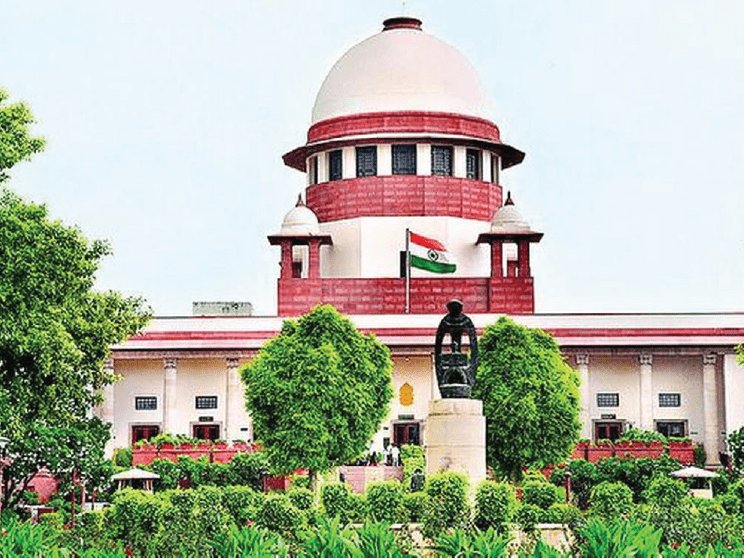The Supreme Court on Monday ordered that National Eligibility cum Entrance Test (NEET) cut-off marks required for admission to Bachelor of Dental Surgery (BDS) course for the academic year 2020-21, be lowered by ten percentile (Harshit Agarwal v. Union of India).
The candidates belonging to the general category who have secured 40 percentile shall be eligible to be considered for admission in the first year BDS course for the year 2020-2021.
Likewise, students belonging to the SC/ST/OBC categories shall be qualified if they have secured 30 percentile, the Court said.
In so far as General candidates with benchmark disabilities specified under the Rights of Persons with Disabilities Act, 2016, they would be eligible if they have secured 35 percentile, the Court added.
The judgment was delivered by a Bench of Justices L Nageswara Rao and Krishna Murari in a batch of petitions challenging the refusal of the Central government to reduce the cut-off marks despite the Dental Council of India (DCI) making a recommendation to that effect.
Sub-Regulation (ii) of Regulation II of Dental Council of India, Revised BDS Course Regulations, 2007 (Regulations) gives discretion to the Central government to lower the minimum marks required for admission to BDS course in consultation with the DCI when a sufficient number of candidates in the respective categories fail to secure minimum marks in the NEET entrance test.
The DCI by a letter dated December 28, 2020, proposed that the percentile for admission to BDS course in Dental colleges should be lowered by 20 percentile for each category. It was stated in the said letter that only 7,71,500 students qualified for admission to MBBS/BDS, (UG) AYUSH and other UG medical courses for the year 2020-2021.
It was made clear by the DCI that the students qualified are not commensurate with the sanctioned admission capacity in different courses like MBBS, BDS, (UG) AYUSH and other UG medical courses.
The Central government, however, refused to do so. Before the Supreme Court, it was argued by the Centre that the decision to not lower cut-off marks was taken since a sufficient number of candidates were available.
Additional Solicitor General Aishwarya Bhati told the Court that 7.71 lakh candidates were found to be eligible for filling up 82,000 MBBS and 28,000 BDS course seats. For each vacant seat, seven candidates are available. She further highlighted the point that there are 2.77 lakh Dentists registered with the DCI. Taking into consideration the availability of 80 percents of Dentists, there is one Dentist for every 6080 persons which are better than the WHO norms of 1: 7500.
Lack of keenness of students to join BDS, especially in private colleges which charge an exorbitant fee, as they are interested in MBBS course was yet another ground cited by the Central government to justify its decision to not lower the cut-off marks.
As regards the number of candidates, the Court held that the calculation by Centre was done without taking into account the fact that NEET (UG) 2020 is conducted for admission into different courses like MBBS, BDS, UG AYUSH and other medical courses.
It noted that the total number of seats available for the academic year 2020-2021 for MBBS is 91,367, BDS is 26,949 and AYUSH is 52,720 making it a total of 1,71,036 seats. The number of NEET qualified candidates are 7,71,500.
The ratio of seats available vis-à-vis eligible students is 1: 4.5 and not 7. The basis for the decision to not reduce minimum marks that there are sufficient eligible candidates is without considering the above vital facts, the Court concluded.
The other two contentions raised by the Central government are extraneous factors and not relevant in deciding whether or not cut-off marks should be lowered, the Court said.
“The decision of the first respondent was propelled by extraneous considerations like sufficient number of Dentists being available in the country and the reasons for which students were not inclined to get admitted to BDS course which remits in the decision being unreasonable. Consideration of factors other than the availability of eligible students would be the result of being influenced by irrelevant or extraneous matters,” the Court said.
It, therefore, set aside the decision of the Central Government dated December 30, 2020, to not reduce the minimum marks for admission to BDS course on the ground that it suffers from the vices of illegality and irrationality.
Courtesy: Bar and Bench








